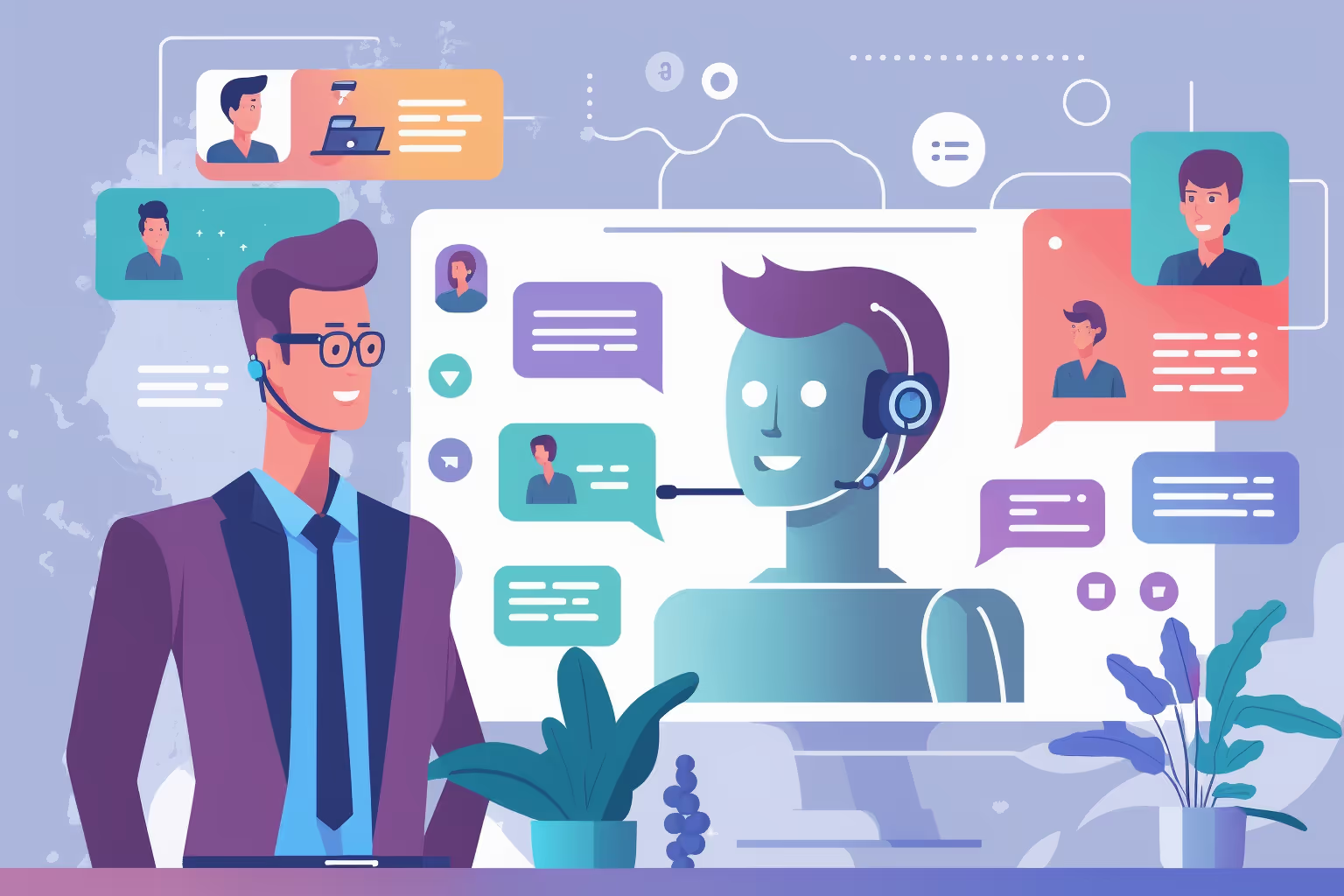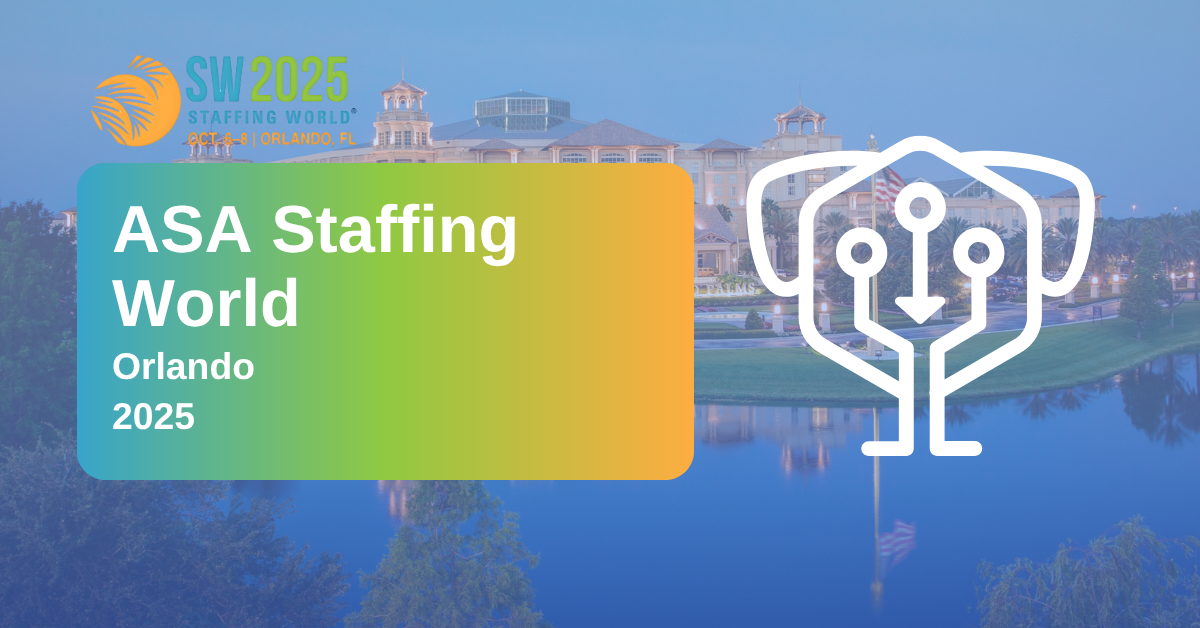Transforming Talent Acquisition: How AI Agents are Shaping the Future of HR
AI agents for recruiting are transforming HR by enhancing talent acquisition with autonomous decision-making and proactive recruitment strategies.

AI agents for recruiting are transforming HR by enhancing talent acquisition with autonomous decision-making and proactive recruitment strategies.
Introduction to AI in Talent Acquisition
Finding and attracting the right talent is crucial for the success of any organization. When teams start to grow, and as agencies handle the mass of applicants that drop into their pipelines, the reliance on traditional methods for talent acquisition continues to limit our capabilities.
At a high level, they often result in processes that are much more laborious and can be quite intensive on a firm’s resources.
However, there have been so many advancements in the technology we use today for our hiring, and specifically with the involvement of artificial intelligence (AI). The release of newly-developed AI agents for recruiting has altered the whole landscape to a new degree. More professionals in HR and recruiting are applying them to their workflows to make upgrades in their recruitment processes.
The ways in which teams partner with these tools depend on what they want to streamline, in accordance with their specific goals.
What is An AI Agent For Recruiting?
To have a better understanding of this movement, we want to be clear about what we’re discussing. There’s an important difference between the general AI tools we might come across and specialized AI agents for recruiting. General AI-driven hiring tools can perform a broad range of tasks that usually require constant oversight and direction.
AI agents are specifically designed to facilitate those AI processes with less intervention in many environments; the biggest difference is their independence in handling what you prompt it to. They are built to adapt to unique scenarios, make decisions, and learn from each experience.
There are a plethora of use cases, but some of the ones we will be discussing today include AI candidate sourcing, AI candidate engagement, and AI candidate screening. What makes them worth it to teams are the faster, more efficient, and cost-effective results they receive. Moreover, by leveraging AI agents like some of the candidate engagement tools mentioned above, it can improve the overall candidate experience. The amplified proactiveness in these approaches brings teams closer to exceptional matches, and hires of greater quality placed a lot sooner.
HeyMilo’s Case Studies
Some companies solve their hiring problems by throwing more recruiters at the issue. If the priority isn’t to expand, then that may only do more harm than good (like wasted resources). Most teams just need to shorten the amount of time spent on the repetitive parts of their processes to function sustainably and more efficiently. Technology like AI agents allow teams to shift focus back to making decisions that drive the most revenue and success. Here’s how real businesses have been empowered by HeyMilo’s AI recruiter:
1. BPOLabs: BPO Scales Screening Without Extra Recruiters
Challenge: Struggled with too many applicants for their customer service roles and slow manual screenings
Results:
- 3X more candidates reviewed with no extra effort.
- 30 days of manual screening cut down to just a few days.
- $12,000+ saved in interview costs in their first month.
2. Alpine Home Air: A One Person HR Team Processing 3,000+ Applicants Per Role
Challenge: A one person HR team at Alpine Home Air receiving thousands of applicants in short timeframes for high volume roles.
Results:
- 70% less time spent screening.
- Candidates moved through the process faster, with better communication.
- Better hires that fit the company culture and stayed longer.
3. Intershop: In-House Hiring 3X More People With the Same Team
Challenge: Too many open roles and only around 4.8% of their applicants were getting properly screened.
Results:
- 3X more hires.
- 85% reduction in time to hire
- 3 hours saved per day for hiring managers during peak hiring period
4. Care Dynamics: Healthcare Staffing Agency Hiring Faster and Filling Specialized Roles with Confidence
Challenge: Taking on more open positions delayed placements. They also hesitated to hire for specialized roles—as they were unsure of how to assess the right skills.
Results:
- 3X more candidate submissions—from 10 to 29 per month, leading to more placements and revenue.
- 90% less time spent interviewing, cutting weeks of work down to just hours.
- Faster, more confident quality hiring in specialized and technical roles.
- 24/7 interview flexibility, allowing candidates to complete screenings on their own time and during off hours for many of their healthcare roles.
AI Agents For Candidate Sourcing
One of the ways AI-driven hiring agents demonstrate their influence is in candidate sourcing. More specifically, true AI sourcing agents act with minimal oversight. Compared to ordinary systems that at most do basic search functions and filtering through databases, these agents become an extension of your sourcing team, functioning as if they were another dedicated employee.
Older and more manual methods of sourcing candidates involve searching and screening through numerous resumes and job applications. Teams are at a great disadvantage with limited systems that lead to inconsistent allocation of time and suboptimal efforts. There are already a lot of factors to balance between candidate and client needs. It’s unfavorable when you’re taken away from tasks that are more imperative, and it makes you a lot more prone to miss out on opportunities.
Candidate sourcing AI agents work as independent members of your recruiting team, making their own decisions about which candidates to pursue and how to approach them. They learn from each successful placement to refine their understanding of what makes a great match.
Soon, AI sourcing agents will better anticipate hiring needs, adjusting their tactics accordingly.
For example, an AI agent might notice people with transferrable skills who tend to succeed in your company culture, and automatically adjust its sourcing strategy.These agents may also be able to spot emerging trends in the job market, like new programming languages gaining popularity, and proactively suggest adjusting job requirements to attract the right talent. Furthermore, they may start to understand career trajectories and can predict when someone might be ready for a new opportunity, even before they start actively job hunting.
A wider access to talent gives employers more options to make good hiring choices. While it may be a new avenue for many, candidates will appreciate being approached for a new role when it makes sense.

Candidate Engagement AI Agents
AI candidate engagement agents engage candidates through a selection of different channels, like sms, emails, and even voice assistants. They are steps above tools like restrictive chatbots, moving candidates through your pipeline for you, from start to finish. These agents can autonomously reach out, answer a variety of dynamic questions, schedule meetings, provide updates on the recruitment process, and even offer guidance on interview preparation.
As AI improves, these agents will become better at answering questions and helping candidates feel more confident and connected.For example, if a candidate expresses uncertainty about the role's requirements, the AI agent can provide more detailed information, share relevant examples, or ask questions to better understand their concerns. During the hiring process, this level of engagement not only keeps candidates informed but also reduces the anxiety and uncertainty that they could be feeling.

AI Candidate Screening
In addition, there are also AI candidate screening agents that can conduct initial interview stages. Through LLMs and advanced voice AI, these tools can personally engage candidates by asking them specific questions related to the job requirements and follow up in a hyper-personalized way to dig deeper into their skills or experience.
Through these conversations, candidate screening AI agents also uncover a worker’s expertise, and experience in great detail on their own. These interviews can be recorded, transcribed, and reviewed later, enabling recruiters to make fairer, data-driven decisions. Compared to scripted Q&As - the AI agent actively listens, processes responses, and decides what to explore next, much like a human interviewer would.
Take HeyMilo, for example: A leading AI interviewer designed to conduct two-way conversational interviews, in a fluid, natural manner. It's an AI recruiter that converses with candidates and encourages them to share their skills and experiences confidently. Responses from candidates are then transcribed and analyzed to provide recruiters with relevant, and objective insights into the suitability of each individual.
We envision platforms like these delivering complete, end-to-end solutions in the near future.
Predictive Analytics From AI Agents
AI agents take predictive analytics to a new level by actively learning and adapting their strategies without human oversight. In the future an AI agent might notice that, for example, candidates who ask detailed questions about professional development tend to stay longer with your company, it could automatically adjust its screening criteria and alert recruiters about similar candidates in the future. The main ideas is that these agents can continuously refine their prediction models based on actual hiring outcomes, getting smarter with each placement.
Conclusion: Embracing the Future of Talent Acquisition with AI Agents For Recruiting
We hope these examples give you a good idea of what AI agents can achieve for us through hiring. We’re excited about the future of talent acquisition, and what lies in the integration of AI agents involved in modern-day HR practices. When HR professionals can dedicate more effort on strategic activities, attract and place top talent faster, and promptly address clients’ needs, they can make decisions based off data that’s precise and beneficial to their organization.
Get the Support You Need to Explore AI in Recruitment
If you’d like to start seeing the benefits from AI innovations in HR and how tools like AI voice agents are playing a part in transforming the talent acquisition space, start today with 10 free HeyMilo interviews. Sign up, head to your HeyMilo dashboard and deploy an AI employee focused on recruiting in minutes!
If you need some time—on a quick call, we can answer your questions, walk through your specific challenges together and show you how HeyMilo’s AI recruiter can make a big impact. It’s a great chance to explore how we can help, and there is no commitment needed. Book a demo with HeyMilo today to learn more about our AI screening tool.
Yes, when it comes to interviews, we utilize an active proctoring layer, an AI-classifier, and more to detect cheating. We provide a trust score that indicates the likelihood of cheating.
Candidates are appreciating the ability to go beyond their resume and interview in a more interactive/adaptive manner compared to one way video interview software. We also have an average candidate satisfaction score of 4.6/5 - which highlights HeyMilo's conversational AI.
Questions can be configured with an objective evaluation criteria - so candidates are evaluated the way your recruiting team currently evaluates candidates.We additionally run 3rd party bias audit checks so with HeyMilo, you're leveraging ethical AI.





.webp)
.png)


